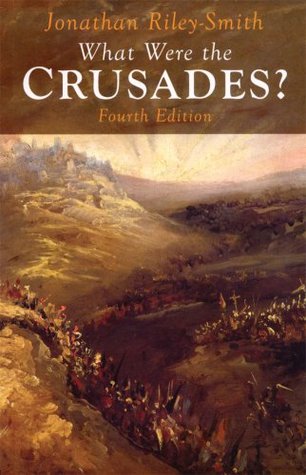The Crusades are an increasingly controversial topic of historical debate. As much as slavery, the Civil War, and the conquistadores, Western Europe’s attempt to recover the Holy Land has been denounced by the anti-Christian left as a quintessential expression of Western man’s vileness. There are many good narrative accounts of the Crusades and many mono-graphs that take up particular aspects—and no end of polemics. Jonathan Riley-Smith’s slim volume, however, is among the rarest of books: a fair-minded attempt to judge the Crusaders by their own moral standards.
Riley-Smith’s discussions of what a Crusade was, who the Crusaders were, and by what authority a knight was justified in taking up the Cross are essential tools to help modern men and women understand a phenomenon that seems as inexplicable to us as the lemmings’ march to the sea. The chapter “A Just Cause” is urgently needed today, for the light it sheds on both the motives of the Crusaders and the morality of the next Western expedition to the Middle East.
The medieval theory of a just war, although it is similar in many respects to later Catholic teachings, was able to embrace not only wars of defense but wars of legitimate vengeance. While some writers (including Bernard of Clairvaux and Pope Urban II) gave the impression that any war against pagans was justified, this was far from being the consensus. Indeed, even Saint Bernard, in advocating a war without truce against the Muslims, believed that “the pagans directly threatened Christendom and it was only because there was no alternative to the use of physical force that they must be crushed if they would not be converted.”
In clinging to the superstition that all religions are more or less the same, we prefer to forget the terrible nightmare that the Muslim conquest inflicted upon the Christians and Jews of the Middle East, and, if we do remember, it is only to condemn the eccentricities of the Fatimid Caliph who destroyed the Church of the Holy Sepulchre or to deplore the depredations of the Seljuk Turks. However, Muslim terrorism against Christians preceded their conquest of Syria and Palestine and has lasted down to the present. As Ba’at Yeor has shown, terrorism was an essential tool of conquest: A demoralized Christian population would more easily accept any terms offered by the Muslim conquerors. It is true that, after the initial bloodbath, Muslim rulers found it in their interest to preserve a tax base of nonbelievers, who were degraded to a legal position far lower and more precarious than that of a freedman in Boston in 1860. Until the arrival of the Turks, however, Muslim authorities did tolerate Christian communities and did not actively discourage European pilgrims who came, as tourists always do, to spend ready money in the local economy. It was the Seljuk Turks’ renewed persecution of Christians and their militant crackdown on pilgrims that induced the Byzantine emperor (very foolishly, it would appear in hindsight) to appeal to Western Christians for help.
As time went on, Europeans took up the Cross for a variety of motives, not all of them honorable, and the longer they stayed in the Middle East, the more the Crusaders began to resemble their pagan enemies. However, as this careful and patient examination reveals, the stated purpose of the Crusades was the perfectly legitimate desire to protect Christians in the East, to reopen Christian shrines to pilgrimages, and to recover control over Christian holy places that were being desecrated by irresponsible Muslim rulers whose only title to the land was a not-so-distant conquest. Emperor John Tzi-miskes had successfully reasserted Byzantine rule (albeit temporarily) over Palestine in the late tenth century. The First Crusade was preached in 1095.
Carefully researched, brilliantly argued, and clearly written, What Were the Crusades? is a necessary corrective to the anti-Christian propaganda that is passed off as scholarship, but it also reminds us of a time when the fierce knights of France, bolder than the men who rode with Bedford Forrest, insisted on applying Christian moral standards to their invasion of the Middle East.
[What Were the Crusades?, by Jonathan Riley-Smith (San Francisco: Ignatius Press) 128 pp., $11.95]

Leave a Reply